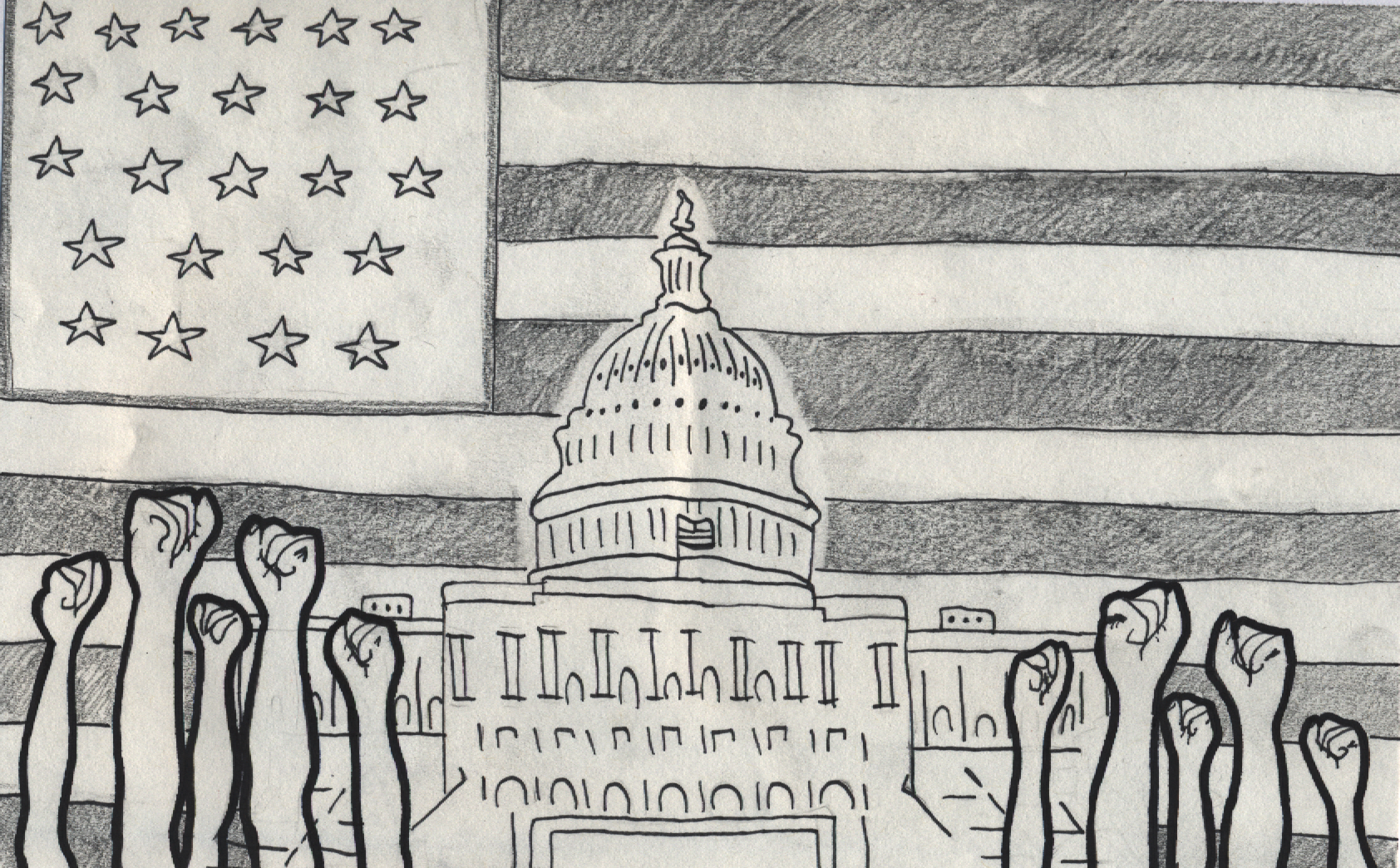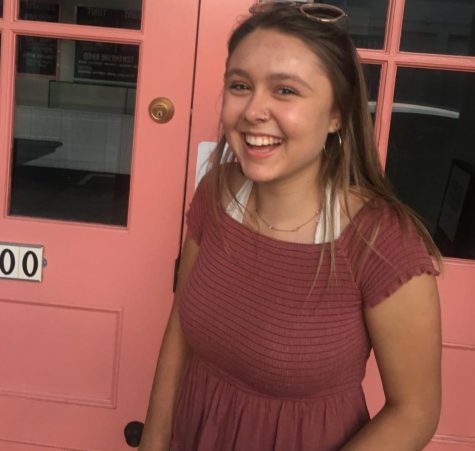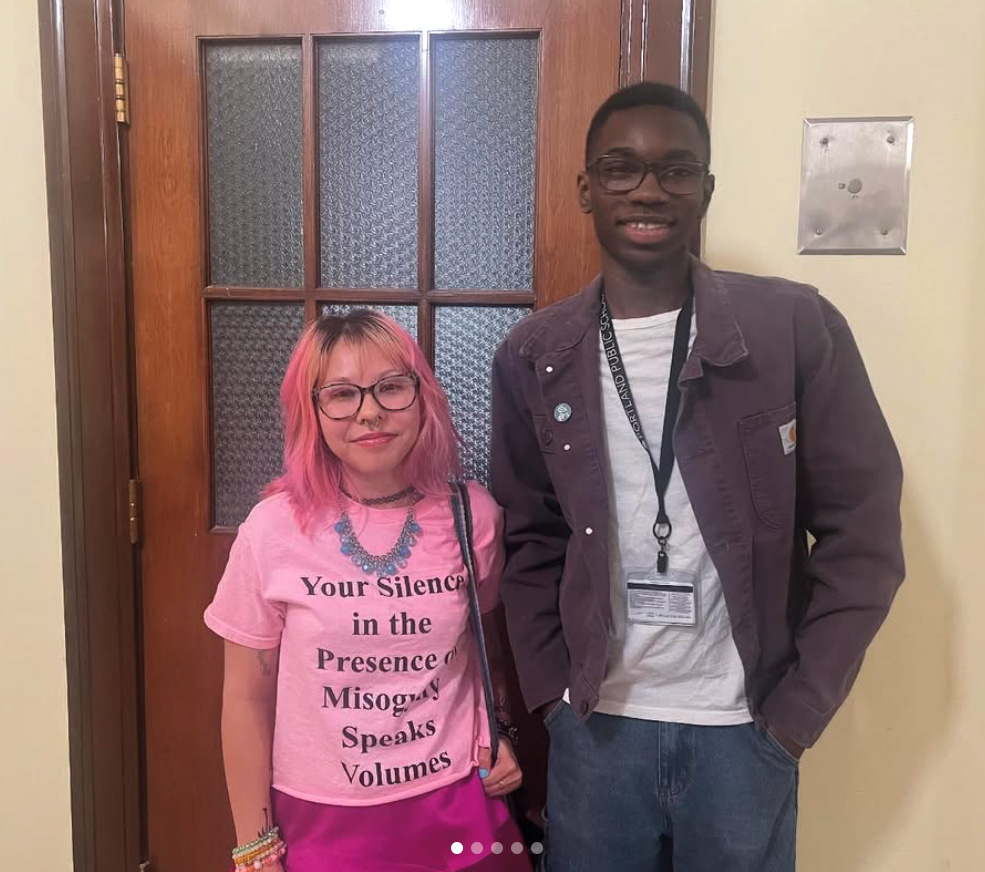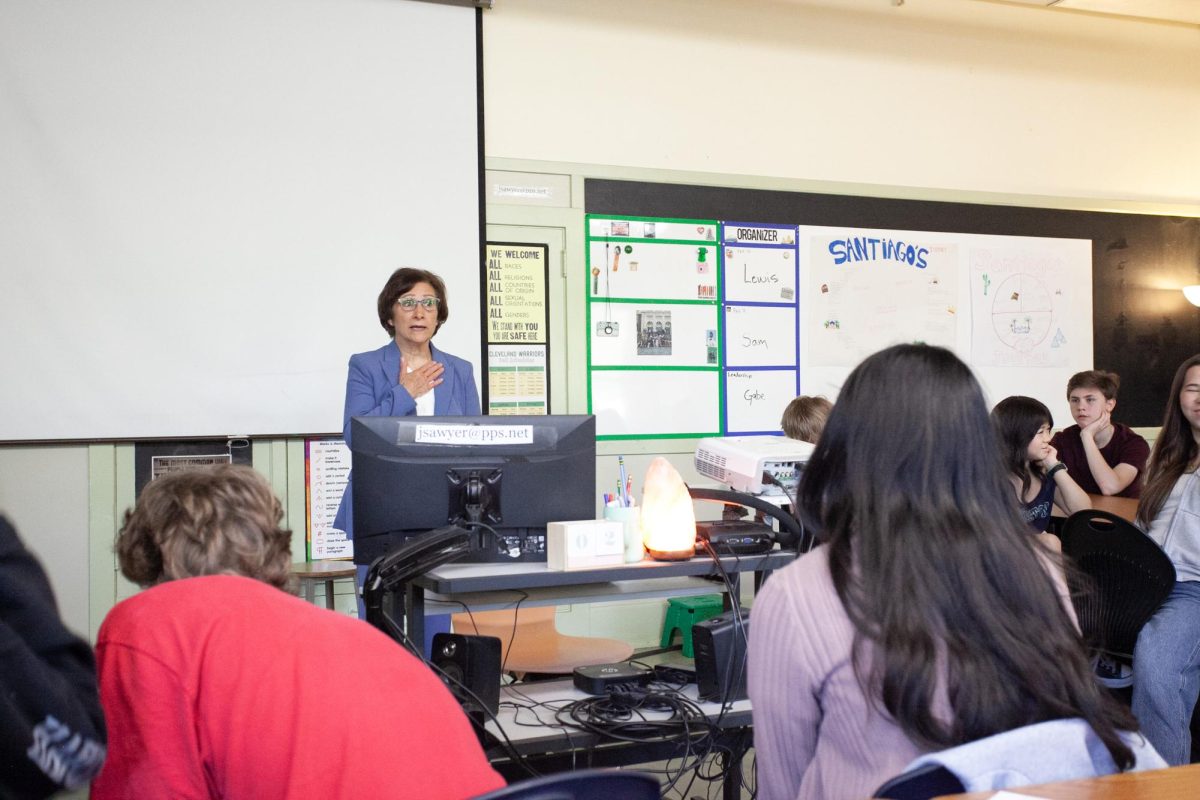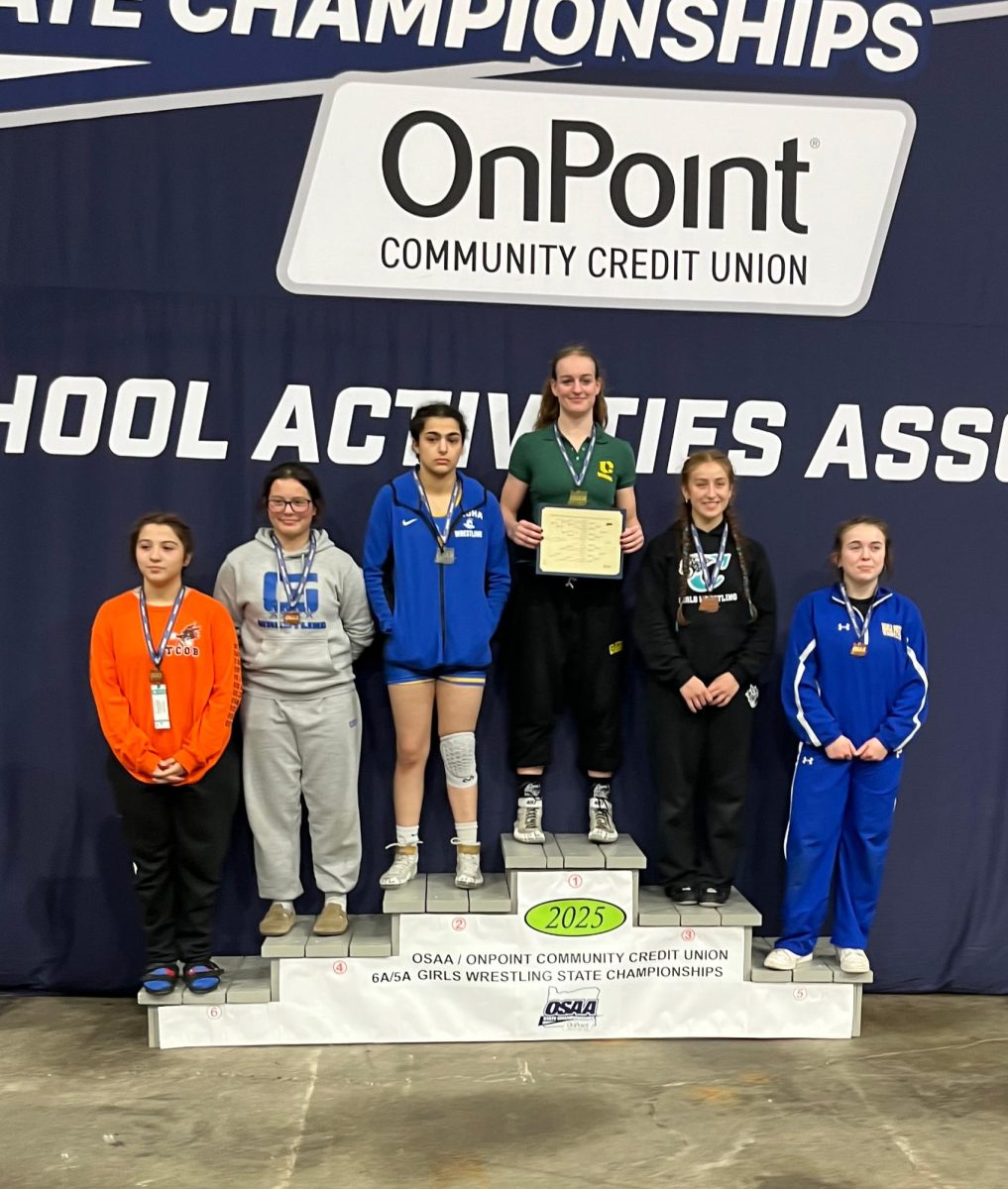Government Now
How do teachers at Cleveland approach teaching government with our current politics and while Trump is in office?
February 21, 2018
Located in Southeast Portland, Cleveland has a reputation for a politically liberal environment, along with students who generally enjoy voicing their opinions and political views. Government/Economics is a required course for graduation and taken by most students their sophomore year. During the current political times we live in, it is interesting to look at what approaches teachers are taking in conveying what has become a very controversial and misleading topic: the government. At times it can be hard not to wonder, do all discussions just return to the overwhelming Trump presidency?
For more than political reasons, understanding how the government works is an essential part of every student’s education. According to Sadie Adams, social studies and government teacher, “Students need to understand how government works so they can be active, involved citizens and know what their rights are. There are a lot of people in this country who choose not to be involved and that is totally a choice and a right that we have, but even people who choose not be active still need that base foundation so they know that they do have rights.”
These basic skills taught in government are ones that students don’t necessarily get otherwise, if they don’t go looking for them. Sophomore Kira Swinth says of her experience, “It’s really important to learn about the system we live in because if you feel like there’s flaws in the system, which I think we all do, if you know the system you can be a lot more aware and have a better ground to push for change.”
Kaley Hambleton, social studies and government teacher adds, “Government class is a way to make sure that we have informed citizens. The hope is to try to empower kids to get involved in the system and make them feel important and inspired to speak out.”
However, there is a fine line between knowing how to respectfully support your own views and bashing the beliefs of others. Many members of Cleveland’s staff agree that this can be one of the most difficult aspects when looking at current events.
Adams elaborates, “I’ve had to be careful for the last three years since the election cycle started, but at Cleveland I’ve found it’s difficult to teach to the middle of the road. Cleveland in its entirety is so left leaning, which is fine, but it’s put me in a position where there are some things I can’t do with students because I feel like it would be unfair to those students that do have conservative viewpoints because it singles them out and puts them in a difficult position.”
Often these discussions turn toward some of the significant Republicans in politics right now, including Trump. Talking about political views from a Democrat vs. Republican standpoint is when things begin to get uncomfortable, so teachers are beginning to stray from discussions with this result.
It is understood that talking about current events and staying informed is important, but the area between important and upsetting can be hard to find. Hambleton says, “Lately, there’s been a sense of unrest and anxiety that wasn’t always there. I think this is kind of indicative of our political culture. Students didn’t take Trump seriously at first and now I feel we have to shy away from this topic at times.” Both Adams and Hambleton are taking strides to ensure that class conversations don’t always return to the Trump presidency, as there are plenty of governmental issues that are more important to address.
One way or another, most students and people have passionate opinions about our current president, and we have to remember that what we are experiencing isn’t the norm and isn’t the only important part of government. It is possible to learn about our government system and to talk about current events without making it about Trump.The class is primarily based upon history in government and this is given far more attention than just talking about the current presidency.
Adams says, “Last year was the worst and the most heated because it was in the middle of the election, but kids tend to get fired up about current events. This year I haven’t focused as much on current events because I felt like it would distract from kids’ learning and focused more on the historical foundation.” She expands on the idea of steering away from focusing on current events so, “all conversations do not end in talking about Trump.”
Adams concludes, “It is ok to have those conservative viewpoints, it is ok to believe what you believe. The common assumption around here is often ‘if you are Republican you are evil.’ There are a lot of good people who are conservative and we need to remember that and be respectful.”
Teachers are doing their best to make every student’s opinion heard and ensure that students are able to talk about whatever beliefs they may have without feeling singled out.
One of the main stances teachers take in helping students understand the current political atmosphere is looking at the government from a historical perspective. The past is obviously influential to the present, so giving students an historical basis helps them to piece together past to present in a more coherent way. Adams says, “I come at government from a historical perspective and teach the foundations and the history of how our government came to be. Of course we have to look at the flaws of our government too. It was created by rich white men and we have to recognize all the people that are left out of the conversation.”
Teaching from a more neutral historical perspective allows students to make their own connections and beliefs about the system instead of assuming everyone thinks one way.
Sophomore Kira Swinth comments on one of her takeaways from government class, “Government didn’t really stem from being a Democrat or Republican, it stemmed from looking out for people and even though the lens of people is very different today, I still think those values are applicable. It’s interesting to connect current events to history and how these philosophies and principles still apply.” She adds, “I love drawing connections between the past and the present. I love bringing in what we’re learning in class to what I hear people talking about and what reports I get on my phone, what I see on social media.”
Cleveland staff is taking a step in the right direction toward keeping students informed and involved so that they have the ability to take their ideas beyond the classroom as they wish. Swinth concludes, “It’s great to have multiple perspectives because when we’re not so polarized as liberal (like Cleveland commonly is), we can understand better where people we disagree with are coming from.” Classes like Ethnic Studies, Women in History, and History of the Americas have also been beneficial resources for helping students expand upon these ideas at Cleveland and gain a broader perspective of world issues.
Hambleton says her hope for her students coming out of this class is better civic engagement. “Civic engagement is really important. Talking about the local piece, how can you get involved as a citizen here in Portland? This year it changed so if you’re 16 you can register to vote, which has been a great thing for students to be able to do so they’re ready for the next election,”she said.
There is not one reason to teach government in schools, there are many. Learning history is important for obvious reasons; students need to know their rights and what is happening in the society they live in, but most important, students discover where their values lie and that they have the power to cultivate change if they disagree with the way the government works.



